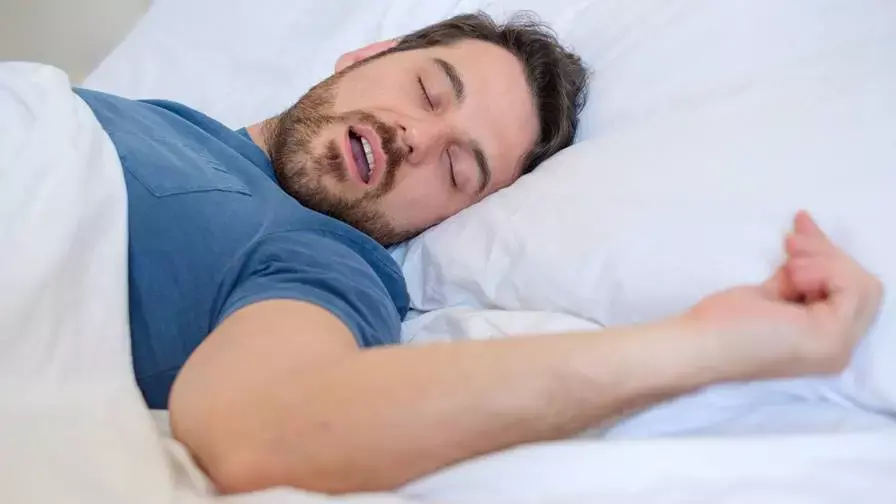- Home
- Medical news & Guidelines
- Anesthesiology
- Cardiology and CTVS
- Critical Care
- Dentistry
- Dermatology
- Diabetes and Endocrinology
- ENT
- Gastroenterology
- Medicine
- Nephrology
- Neurology
- Obstretics-Gynaecology
- Oncology
- Ophthalmology
- Orthopaedics
- Pediatrics-Neonatology
- Psychiatry
- Pulmonology
- Radiology
- Surgery
- Urology
- Laboratory Medicine
- Diet
- Nursing
- Paramedical
- Physiotherapy
- Health news
- Fact Check
- Bone Health Fact Check
- Brain Health Fact Check
- Cancer Related Fact Check
- Child Care Fact Check
- Dental and oral health fact check
- Diabetes and metabolic health fact check
- Diet and Nutrition Fact Check
- Eye and ENT Care Fact Check
- Fitness fact check
- Gut health fact check
- Heart health fact check
- Kidney health fact check
- Medical education fact check
- Men's health fact check
- Respiratory fact check
- Skin and hair care fact check
- Vaccine and Immunization fact check
- Women's health fact check
- AYUSH
- State News
- Andaman and Nicobar Islands
- Andhra Pradesh
- Arunachal Pradesh
- Assam
- Bihar
- Chandigarh
- Chattisgarh
- Dadra and Nagar Haveli
- Daman and Diu
- Delhi
- Goa
- Gujarat
- Haryana
- Himachal Pradesh
- Jammu & Kashmir
- Jharkhand
- Karnataka
- Kerala
- Ladakh
- Lakshadweep
- Madhya Pradesh
- Maharashtra
- Manipur
- Meghalaya
- Mizoram
- Nagaland
- Odisha
- Puducherry
- Punjab
- Rajasthan
- Sikkim
- Tamil Nadu
- Telangana
- Tripura
- Uttar Pradesh
- Uttrakhand
- West Bengal
- Medical Education
- Industry
Weighted blankets may boost sleep by releasing melatonin: Study

SWEDEN: According to a recent study from Uppsala University, young adults who use a weighted blanket before bed have higher melatonin levels. Darkness causes this hormone to rise, and some research indicates that it may help people fall asleep. The Journal of Sleep Research has published the results.
Weighted blankets have been linked to a reduction in human sleeplessness in previous studies. The fundamental mechanisms, nevertheless, are not completely known.
"We all understand that receiving a hug from someone might help us unwind or get the support we need," says Christian Benedict, PhD, an associate professor of pharmacology at Uppsala University in Uppsala, Sweden.
And according to him, "I believe this is somewhat comparable with a weighted blanket because the blanket activates our sensory system, and this system transmits information to the brain where it effects particular structures that play a role in the regulation of melatonin."
In order to determine whether using a weighted blanket at night boosts the synthesis of hormones that promote sleep and reduce stress, such as melatonin and oxytocin, investigators from Uppsala University in Sweden conducted an experiment with 26 young men and women.
Additionally, they looked at whether using a weighted blanket at night (12 percent of the participant's body weight) might lessen the activity of the body's stress systems.
There were 26 young, non-insomniac men and women who participated in the study. The participants had two experimental sessions: the first was a "adaptation" night in the lab, and the second was the actual experiment. According to the authors, the adaptation night served to assist participants in acclimating to the study's conditions. Using the Karolinska Tiredness Scale, participants' sleepiness was measured every 20 minutes between 10 and 11 p.m. and between 7 and 8 a.m. the following morning. Saliva was also taken every 20 minutes throughout this time. Using sophisticated wearable equipment that analyzes various physiological signs of sleep, the length of sleep was also recorded.
Key highlights of the trial:
- There were no baseline variations in any salivary factor between the blanket conditions (p ≥ 0.230 as determined by a Wilcoxon signed-rank test or paired Student's t-test).
- Between 22:00 and 23:00, the average salivary melatonin content increased by 5.8 pg/mL (p < 0.001 for TIME).
- Although there was no interaction between BLANKET and TIME (p = 0.855), the average increase in salivary melatonin levels between 22:00 and 23:00 was higher in the weighted blanket condition (weighted vs. light blanket: 6.6 ± 0.7 vs. 5.0 ± 0.5 pg/mL).
- Salivary levels of melatonin rose by nearly 30% when a weighted blanket was used.
- Oxytocin, cortisol, and sympathetic nervous system activity did not differ between the weighted blanket and light blanket situations.
- When individuals used the weighted blanket instead of the light blanket, there were no appreciable variations in the amount of time they spent sleeping overall.
"Our research could provide a mechanism for how weighted blankets work therapeutically to improve sleep. Our study, however, only looked at the immediate impact of using a weighted blanket and is based on a limited sample size.," they asserted.
The authors concluded that larger studies are required, including a look at whether the reported effects of a weighted blanket on melatonin are maintained over longer durations.
REFERENCE
Meth, E. M. S., Brandão, L. E. M., van Egmond, L. T., Xue, P., Grip, A., Wu, J., Adan, A., Andersson, F., Pacheco, A. P., Uvnäs-Moberg, K., Cedernaes, J., & Benedict, C. (2022). A weighted blanket increases pre-sleep salivary concentrations of melatonin in young, healthy adults. Journal of Sleep Research, e13743. https://doi.org/10.1111/jsr.13743
Dr Kamal Kant Kohli-MBBS, DTCD- a chest specialist with more than 30 years of practice and a flair for writing clinical articles, Dr Kamal Kant Kohli joined Medical Dialogues as a Chief Editor of Medical News. Besides writing articles, as an editor, he proofreads and verifies all the medical content published on Medical Dialogues including those coming from journals, studies,medical conferences,guidelines etc. Email: drkohli@medicaldialogues.in. Contact no. 011-43720751


